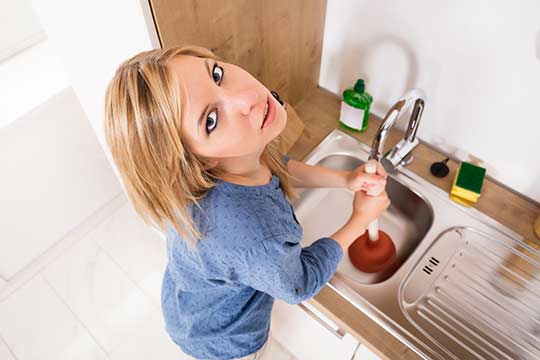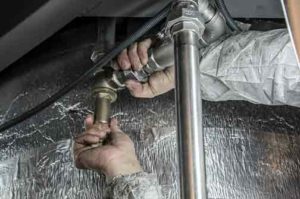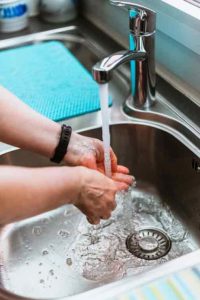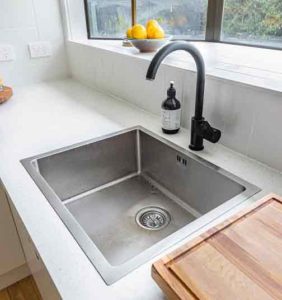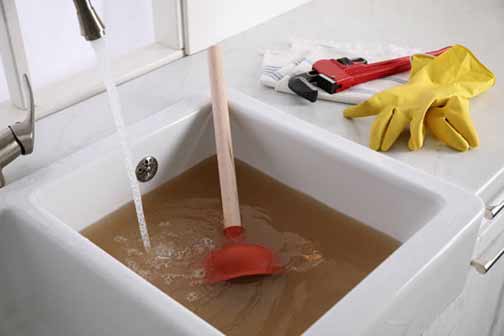
Dealing with reoccurring clogs in your Chicagoland home can be frustrating and inconvenient. However, understanding the common causes of these clogs and knowing how to effectively deal with them can help you maintain a smoothly running plumbing system. Below we will explore the main reasons why clogs happen in the first place and provide you with practical solutions to resolve them.
Faulty Plumbing System
In some cases, reoccurring clogs can be attributed to a faulty plumbing system. If your home’s plumbing was not properly installed or if there are underlying issues with the pipes, it can lead to frequent clogs. Common problems include misaligned pipes, low water pressure, and inadequate pipe diameter.
To address this issue, it is essential to enlist the help of a professional plumber. A skilled plumber will be able to assess your plumbing system, identify any underlying problems, and make the necessary repairs or replacements. Investing in the expertise of a professional will ensure that the root cause of the clogs is addressed, minimizing the likelihood of future clogs.
Poor Drain Maintenance
Another common cause of reoccurring clogs is poor drain maintenance. Over time, debris, such as hair, soap residue, and food particles, can accumulate in your drains, leading to blockages. Additionally, the buildup of mineral deposits can restrict water flow and contribute to clogs.
To prevent clogs caused by poor drain maintenance, it is important to establish a regular cleaning routine. Start by removing any visible debris from the surface of the drain and then use a mixture of baking soda and vinegar to break down any stubborn buildup. Alternatively, you can purchase drain cleaning solutions from your local hardware store.
In addition to regular cleaning, it is advisable to use drain screens or guards to catch large particles before they enter the drain. This simple preventive measure can significantly reduce the occurrence of clogs and keep your plumbing system running smoothly.
Tree Roots in Sewer Lines
In some instances, reoccurring clogs may be due to tree roots infiltrating your sewer lines. Tree roots naturally seek moisture, and they can make their way into small cracks or joints in your pipes. Once inside, the roots can grow and expand, causing blockages and potentially damaging your plumbing system.
If tree roots are the cause of your reoccurring clogs, it is crucial to address the issue promptly. Contact a professional plumber who specializes in sewer line camera inspections and repairs. They will use specialized equipment to identify the location and extent of the root intrusion, and then recommend the most appropriate course of action, which may include root removal or pipe replacement.
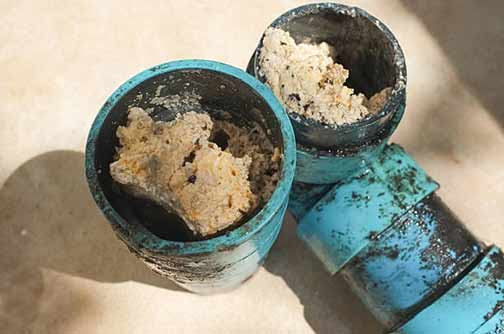
When grease is poured down the drain, it cools and solidifies, clinging to the walls of the pipes.
Dispose of Grease Properly
Improper disposal of cooking grease is a common culprit for reoccurring kitchen sink clogs. When grease is poured down the drain, it cools and solidifies, clinging to the walls of the pipes. Over time, this buildup can restrict water flow and lead to clogs.
To prevent grease-related clogs, it is essential to dispose of cooking grease properly. Allow the grease to cool after cooking, and then scrape it into a disposable container. Once the container is full, seal it and throw it in the trash. Alternatively, you can use absorbent materials, such as paper towels, to soak up the grease before throwing it away.
An effective way to remove any residual grease in the pipes is to pour boiling water down the drain regularly. This will help dissolve any grease buildup and keep the pipes clear.
Install Drain Strainers
Installing drain strainers in your sinks, tubs, and showers is an easy way to prevent hair, soap residue, and other debris from entering the drain and causing clogs. These strainers are inexpensive and can be found at most home improvement stores.
Regularly cleaning the drain strainers is also important to maintain their effectiveness. Simply remove them and rinse away any accumulated debris under warm water.
In Summary
Dealing with reoccurring clogs in your Chicagoland home requires a combination of proactive measures and professional assistance, if needed. By understanding the common causes of these clogs and implementing the suggested solutions, you can ensure that your plumbing system remains free from frequent blockages. Remember to prioritize proper drain maintenance, dispose of grease correctly, and consider installing drain strainers to keep your pipes flowing smoothly. With these preventive actions, you can enjoy a clog free home and peace of mind.
